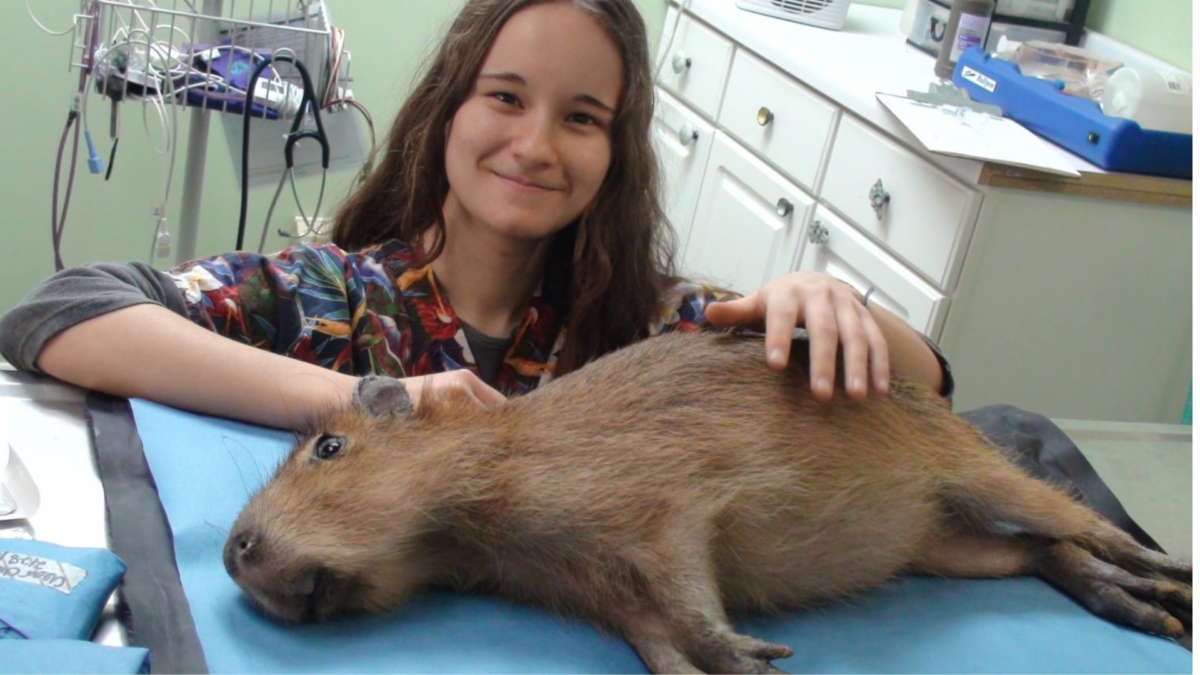An exotic pet veterinarian who specializes in exotic animals deals with undomesticated species. Their primary roles involve diagnosing and treating health issues, administering vaccines, and performing various tasks to promote animal health.
Pet ownership is becoming more diverse, with many people choosing exotic pets like hamsters, rabbits, lizards, and turtles. Caring for these animals can be tricky compared to cats and dogs, so having access to an animal hospital is essential.
An exotic pet veterinarian specializing in exotic animals understands the right ways to handle them. This is important because wrong handling can stress your pet. They also have the special tools to check, test, and care for exotic pets.
Basic Health and Wellness Needs of Exotic Pets:
Good care for exotic pets starts at home. You should provide the right food, a suitable habitat, and the correct climate. Ensure the enclosure is large enough and has safe bedding. For example, reptile carpet is safer for lizards than sand, which can lead to health problems if eaten. Change bedding like paper or hay regularly to prevent disease.
Snakes need rough surfaces, like tree branches, to help them shed their skin completely. Incomplete shedding can harm their tails. Feeding and climate can be challenging for exotic pet owners. Fortunately, pet stores sell special pellets for small pets like rabbits and hamsters, but you may need to add healthy fruits or vegetables. Some small pets, like sugar gliders, require a specific balance of nutrients. Reptiles also need precise temperature and humidity.
Exotic Pet Veterinarian vs. Physician:
Veterinarians learn to care for many animals, unlike human doctors who focus only on people. They study common pets like cats and dogs, but only a few schools cover less common pets like birds and reptiles. Even fewer teach about unique pets like chinchillas and hedgehogs. When they graduate, vets are expected to treat any pet that comes to them, but they might not have much training for all species. Unlike doctors who specialize in areas like cardiology, vets are trained to do many things, from surgery to preventive care. It’s challenging to master these skills for multiple species. Veterinarians are trained to handle many tasks, unlike doctors who focus on specific areas like cardiology or dermatology. They perform surgeries, do dental work, give various medications, teach preventive care, and conduct postmortem exams. While veterinarians are very knowledgeable, mastering these skills for different species is quite challenging.
Specializing in Exotic Pet Care:
While veterinarians can treat any legal exotic pet, they need advanced training to be recognized as specialists in birds, small mammals, reptiles, amphibians, or zoo animals. I spent a month in the exotic pet department during my vet school internship, getting to know the different animals I would treat later. I understood I needed further education, so I pursued a two-year residency in bird and exotic animal medicine and surgery. After finishing, I faced a challenging three-day exam to earn my title as a bird specialist. Currently, there are about 150 bird specialists globally.
Exotic Pet Care Overview:
Exotic pets need more careful attention than cats and dogs. They have unique needs and live in special environments that need regular maintenance. You should be ready for this when caring for one. At Ridge Lake Animal Hospital, we help our clients understand how to care for their pets. Our team will ensure you know all you need to keep your pet happy and healthy for years.
Exotic Pet’s Wellness Exam:
Regular check-ups are important for your pet’s health. We weigh, measure, and examine your pet to look for problems early. We can help if your pet is too heavy. We check your pet’s heart, lungs, mouth, and ears. The check-up depends on your pet’s kind. We can help if your pet has teeth problems or is a bird. We will check your pet from head to toe and talk about its food and behavior.
Conclusion:
An exotic animal vet helps wild animals. They check animals for problems, give shots, and keep animals healthy. They know a lot about caring for wild animals. They work with giraffes, elephants, lions, zebras, tigers, reptiles, and water animals. Exotic vets work in special hospitals, zoos, and places that help sick or injured animals. They can also work in conservation centers and aquariums. Exotic vets mainly help animals in zoos and other places. They take care of these animals every day. Exotic pets need special care. We need to know about their home to help you take care of them.

